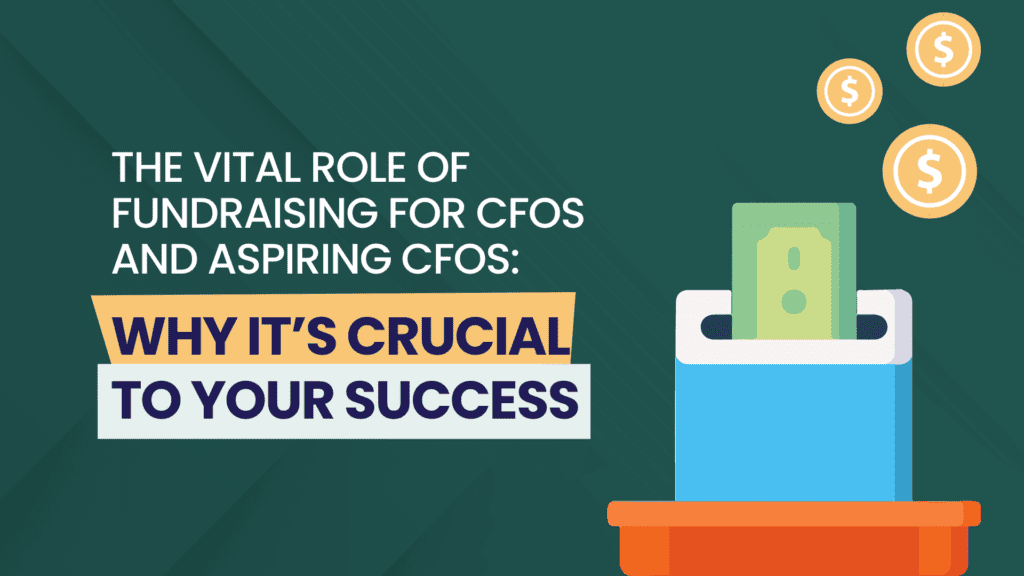What Is a Strategic CFO?

What defines a strategic CFO, and how is this role different from traditional finance leadership?
A strategic CFO is a finance leader who goes beyond operational duties to actively shape business strategy, influence decision-making, and drive long-term growth. Unlike traditional CFOs focused solely on reporting and controls, a strategic CFO uses financial insight to inform corporate direction and acts as a partner to the CEO. The strategic CFO is no longer a back-office role — it’s a key driver of transformation and value creation.
How is a strategic CFO different from an operational CFO?
The operational CFO focuses on accuracy, compliance, and smooth day-to-day financial operations — such as managing cash flow, budgeting cycles, and reporting deadlines. They ensure the numbers are right and reported on time.
The strategic CFO, by contrast, uses those numbers to influence decisions across the business. Their role is proactive rather than reactive. They help shape investment priorities, assess long-term risks, support innovation, and align financial planning with business objectives. In the boardroom, their voice carries equal weight to that of the CEO, COO, or Chief Strategy Officer.
What are the key characteristics of a strategic CFO?
A strategic CFO blends deep financial expertise with business acumen and leadership ability. Their influence spans across the executive team and into external partnerships, investor communications, and transformation initiatives.
Here’s what sets them apart:
- Commercial mindset: Thinks beyond finance — focuses on market growth, customer impact, and business outcomes
- Forward-thinking approach: Uses predictive analytics and scenario planning, not just historical reporting
- Decision support: Provides the data and insight to guide executive and board-level strategy
- Cross-functional influence: Collaborates closely with sales, marketing, product, and operations leaders
- Capital allocation expertise: Recommends where to invest for future growth, not just where to cut costs
- Resilience building: Identifies opportunities in uncertainty and plans for long-term value creation
In short, a strategic CFO doesn’t just report the story — they help write it.

What does a strategic CFO actually do?
While responsibilities can vary based on company size and stage, strategic CFOs typically:
- Lead financial planning tied directly to business strategy
- Shape investment decisions and capital structure
- Evaluate expansion, innovation, or M&A opportunities
- Help set organisational goals and measure progress against them
- Engage with stakeholders — from the boardroom to investors to vendors — to communicate the business case for long-term growth
For example, consider a company evaluating a facility expansion. A traditional CFO may focus on cost and short-term ROI. A strategic CFO, however, considers the full picture: capital raising, project risk, alignment with growth strategy, and how to articulate value to external partners — even if initial returns aren’t immediate. That’s the difference.
Why are strategic CFOs in such high demand?
The modern business environment is increasingly volatile, fast-moving, and data-driven. Executives need finance leaders who can do more than keep the books — they need partners who help steer the ship.
Recent global surveys show that:
- Over 70% of CFOs say their role has gained strategic influence in recent years
- Nearly half now play a direct role in business transformation
- 65% report increasing responsibility in setting and determining company strategy
These shifts underscore why companies are seeking CFOs who can lead, not just manage.
Is every CFO expected to be strategic now?
Increasingly, yes. While operational excellence is still foundational, strategic capability is becoming a baseline expectation — especially for CFOs in growth-stage, global, or digitally transforming companies.
That said, not every finance professional naturally starts out with a strategic orientation. It’s a skill set — and a mindset — that can be developed over time.
If you’re a finance leader aiming to become a CFO, it’s important to:
- Build your business acumen — understand how your company makes money
- Learn to communicate financial insights in strategic, board-level language
- Expand your network across departments and executive functions
- Shift your mindset from “control” to “contribution”
How can I become a more strategic CFO?
This is exactly the kind of development GrowCFO supports through our Future CFO Program. We work with aspiring and first-time CFOs to develop the confidence, credibility, and strategic range required to lead at board level.
You’ll learn how to:
- Translate financial data into commercial insight
- Build executive presence and influence decision-makers
- Align finance with organisational priorities
- Communicate clearly with investors and the board
- Navigate uncertainty while driving long-term value
Final thoughts on the strategic CFO
The strategic CFO is no longer a niche profile — it’s the future of finance leadership. As businesses navigate constant change, they need finance leaders who can think ahead, communicate clearly, and drive value across the organisation.
If you’re ready to become that kind of leader, the first step is understanding where you are today — and what’s next.
Want to become a strategic CFO?
Join our Future CFO Preview Event to learn how the GrowCFO Future CFO Program helps ambitious finance professionals step into their first CFO role with confidence. Explore the core strategic skills today’s boardroom demands — and discover how to develop them.
Reserve your place now.





Responses